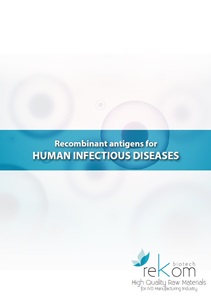Acquired immunodeficiency syndrome (AIDS)
Acquired immunodeficiency syndrome (AIDS) is a sexually transmitted disease (STD) caused by the Human Immunodeficiency Virus (HIV). It is part of the diseases included in the TORCH panel. HIV attacks the immune system, specifically white blood cells called CD4 cells. If left untreated, it can lead to the disease AIDS, and once you contract the virus, you have it for life. The transmission of HIV is only through the exchange of certain body fluids with the infected person: blood, semen, pre-seminal fluid, rectal secretions, vaginal secretions and breast milk. To do this, these fluids must come into contact with a mucous membrane (rectum, vagina, opening of the penis, and mouth), injured tissue, or be injected directly into the bloodstream. Therefore, you can get the virus only during specific activities, such as sexual intercourse or injection drug use. It can also be transmitted from mother to child during pregnancy, childbirth or breastfeeding, and through blood transfusions. The symptoms vary depending on the stage of the infection. The primary stage (acute HIV) develops flu-like symptoms and can be so mild that they may not even be noticeable. It is the stage of the infection in which the virus spreads most easily, given its high viral load. In the next phase, the so-called latent clinical infection (chronic HIV), the virus is still active, but symptoms do not usually appear. During this phase the virus can also be transmitted. In the last stage, the most serious, AIDS develops. In this phase, the immune system is so weakened that an increasing number of serious diseases appear. With AIDS you can have very high viral loads, making you highly contagious. The treatment consists of antivirals, regardless of the stage in which the infection is, and as a prevention it is recommended to practice safe sex and be under treatment in case of being infected. The diagnosis of HIV is made through blood or saliva tests to detect antigens or antibodies of the virus, or PCR.
HIV is a major global health problem, claiming more than 30 million lives to date. It is estimated that nearly 40 million people worldwide have HIV, more than two-thirds of whom are in Africa. Of these, almost 70% have access to antiretroviral therapy and around 15% do not know they have the virus. Without treatment, HIV develops into AIDS in about 8 to 10 years, and life expectancy is about three years. People on treatment may never reach stage 3, AIDS, and it helps prevent transmission of the virus.
Human infectious disease.
At Rekom Biotech, we desing and manufacture IVD reagents for diagnosis of Acquired immunodeficiency syndrome (AIDS). If you do not find what you are looking for, you can request our custom-made recombinant proteins/antibodies service. Do not hesitate to contact us!
How to reconsitute lyophizated vials
Recombinant antigens for diagnosis of AIDS





